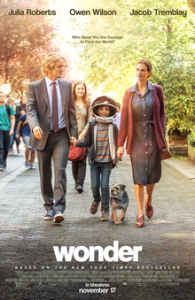‘It’s not the film that I would have made.’ So says Matangi Arulpragasam, known on-stage as M.I.A., after initially watching her friend (or maybe not so much anymore) Stephen Loveridge’s documentary Matangi/Maya/M.I.A. Aside from this not being a bad thing – no-one particularly wants celebrities to start directing their own biographies – her displeasure is not a surprise. It can be humbling to see how those closest see you, and this is certainly a raw account.
She might have expected music to play a bigger part. After all, that has been her livelihood for the past 20 years. However, Loveridge didn’t meet Matangi, who in private goes by Maya, through music but through art school, long before she became M.I.A. He knows the source of her passion requires a much wider scope. Consider that she was born in Sri Lanka, raised in London as a refugee, daughter to an absent father who was the self-proclaimed founder of the Tamil Tigers Resistance, and is a self-made popstar and human rights advocate. She is probably the world’s most visible Sri Lankan, and a polarising one at that, and this requires more than a mere music doco can deliver. To do so would be pitifully reductive.
She is alternately bubbly and jaded, amiable and coarse, ardent and abrasive, frustrated and frustrating. She has been labelled everything from a terrorist sympathiser to a hypocrite, unfairly chided for claiming concern for a Tamil cause while sporting a West London accent, and then in the next breath put on a pedestal and praised by Rolling Stone for her 2007 album of the year, Kala. It has been an eventful life for Maya that has rarely slowed.
Seeing Maya channel her restlessness from adolescence into a tumultuous adulthood, balancing success with controversy year by year, is never less than captivating. She originally wanted to be a documentary filmmaker herself and in the 90s spent hours and hours taking home films documenting her life in West London and the rich migrant community she hung with. She also touched base with her roots, especially drawing inspiration from her grandmother who in one touching clip towards the end imparts some sound life advice that appears to have hit home.
As much as 700 hours of footage she gave to Loveridge to turn a portrait from, and this backlog makes up the majority of his documentary. You could say the hand-over itself tells us something of Maya, especially in a time of rampant data breaches and intrusive gossip columns that seem to have run parallel to her career. Not many people, let alone someone of her stature, would feel comfortable unloading such personal material — much of which she may never have seen — on another and expect them to treat it responsibly. Perhaps she is overly trusting or just impulsive. Or it could be that she is unconcerned with how others might judge her because the worst she could be accused of has already been said. An opportunist perhaps could have used it for a hatchet job, but Loveridge is touchingly compassionate. He knows her too well.
Infused with the world-wide bank of sounds that have informed Maya’s musical journey, this low-fi doco highlights the close confines of the migrant experience and the alienation of being made to feel like the other. It reveals a brash but curious girl battling a clash of identities, having lived the first nine years of her life in Sri Lanka and the second nine in London, while also drawing on Maya’s friendship with Elastica frontwoman Justine Frischmann as her kickstarter. The title Matangi/Maya/M.I.A. is a nod to Loveridge’s challenge in this respect: she isn’t any one thing, as each identity feeds the others.
With all this material at our disposal, even if you can’t like her at every moment of this film — managers come and go, controversies could have been handled better, a ‘Fuck the New York Times’ tweet could have been better explained — Loveridge does a good job of providing context for the simmering drive that Maya has wielded since her days goofing around to hiphop in the family living room. There is little doubt she is flawed, but regardless of her approach to advocacy that many might criticise for lacking some tact, that same drive is an idealist one that has found strength in the communities she has fostered and has been frustrated by people who haven’t been willing to listen. You have to admire her persistence and the impact she has made, which could only be attributed to someone who has given every ounce of effort to be where she is.
Loveridge might be too close to provide a truly impartial opinion on someone he has known for over two decades; understandably never does he risk the last word coming from anyone other than Maya. But the sheer energy and intimacy of this documentary, aided by her musical legacy, should go a long way to rectifying an imbalance between what the public sees of MIA and how Maya and her closest friends see her. It may not be the film that Matangi Arulpragasam would have made, but it does her some credit nonetheless.
Matangi/Maya/M.I.A. is in cinemas from 10th January through Madman Films.





